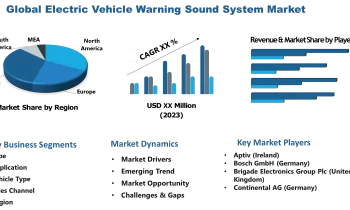Keeping up with what’s happening in the world of finance is incredibly important. Plenty of decisions – insurance, what colleges are within reach, grocery lists, home maintenance (from fridge repair to security), housing locations, etc. – are dependent on what is happening in that world so that relying on wrong financial news can be disastrous.
So here are 3 tips for fact-checking finance news.
Examine Data Sources
Understanding the origin of financial data is crucial, as you want to discern its reliability. Official reports, government data, and information from reputable financial institutions are sources you want to rely on for accurate news reporting.
Inspect the references or citations within the news article. If the data is derived from government reports, financial statements, or recognized institutions such as the SEC (Securities and Exchange Commission), it is a means to ensure credibility. Additionally, check the publication dates of these sources to align the information with the timeframe of the news.
Suppose a financial news article reports a surge in a company’s revenue. Verify the claim by checking references to the company’s official financial statements or reports filed with regulatory bodies. If the article cites quarterly earnings reports from the company’s website or reputable financial databases, it really adds credibility to the reported revenue increase. Or if the news involves economic indicators, such as unemployment rates, cross-reference the data with official government reports.
Watch for Consistency
Consistency across reputable financial news platforms enhances confidence in the accuracy of information. Discrepancies between sources could indicate errors, misinterpretations, or even intentional misinformation, something you don’t want in your financial assessments.
Compare the news story with reports from other well-established financial news sources. Look for commonalities in key facts and figures. If various trustworthy sources often corroborate the information, it strengthens the likelihood of accuracy.
Consider a news report on a significant stock market development. Check how this news is presented across different financial news websites. If Bloomberg, Reuters, CNBC, etc all report similar trends and market impacts, it really adds to the confidence in the accuracy of the information.
In the case of conflicting information, examine the methodologies used by different sources in analyzing the data. This can offer insights into potential biases or errors, helping you make a more informed judgment.
Verify Quotes and Statements
Quotes and statements from experts or industry insiders can provide credibility to financial news. However, false or misattributed quotes can introduce inaccuracies. Verifying the expertise and reliability of the individuals quoted is crucial to ensuring the authenticity of the information.
Identify the individuals quoted in the article and scrutinize their credentials. Established experts with a proven track record in finance or relevant industries are individuals you want to consider for accurate insights. Cross-reference their statements with other credible sources to validate the consistency of their viewpoints.
Suppose an article quotes a financial analyst predicting a market downturn. Verify the analyst’s credentials by checking their past predictions and industry reputation. If the analyst has a history of accurate forecasts and is often cited by reputable financial sources, it really adds validity to the quoted prediction.
If a news story quotes multiple industry experts on a complex financial topic, cross-verify their opinions with academic research or reports from financial institutions. Consistency in their views across different reliable sources strengthens the reliability of the quoted statements.
You want to know that you’re getting the facts when it comes to your finance news. So try out these fact-checking tips.



